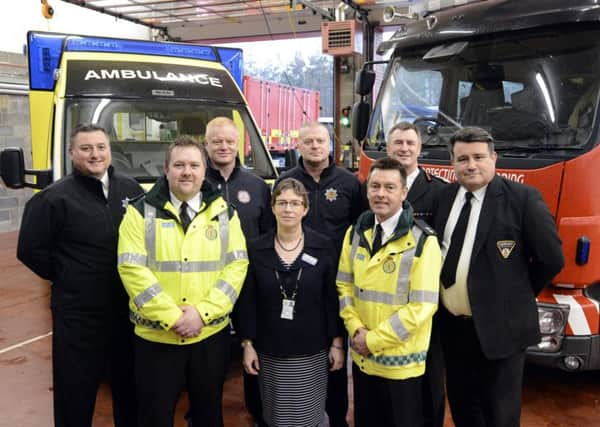Criticism of ambulance chiefs after emergency response trial ends


The Emergency Medical Response Trial came to an end across the North East after 18 months as a result of national negotiations around the role of firefighters by the Fire Brigades Union (FBU).
Cleveland Fire Brigade attended about 3,000 calls in 12 months, often reaching patients before paramedics.
Advertisement
Hide AdAdvertisement
Hide AdCouncillor Ray Martin-Wells, who is chair of the North East Joint Health Scrutiny Committee, wrote to the chief executive of the North East Ambulance Service (NEAS) seeking assurances that people would not suffer as a result.
A reply from Yvonne Ormston said the end of the trial was disappointing but pointed out fire crew availability in Hartlepool had been limited since the start of the year so would not have a significant impact on residents.
Coun Martin-Wells raised the issue again with NEAS at a meeting of the health scrutiny committee held in Hartlepool this week.
He said: “I know 3,000 is a small amount in the big picture, but if you were one those 3,000 people where a fire appliance turned up with a defibrillator to resuscitate you it is important.”
Advertisement
Hide AdAdvertisement
Hide AdCoun Martin-Wells said firefighters often got to medical emergencies up to 12 minutes before paramedics.
He added: “It was only ever a trial, but I think a level of criticism has to be aimed at NEAS management for not having a back up plan.
“You have kind of relied on them for 18 months and they have been very effective and it’s just a little disappointing that the response I got from the chief executive was ‘it was always said the trial was never about improving service performance’ but it did improve your performance and it did improve outcomes.”
Caroline Thirlbeck, NEAS director of strategic performance and workforce, said they were due to meet with fire brigades to explore any joint working opportunities.
Advertisement
Hide AdAdvertisement
Hide AdShe added the ambulance service is also looking to recruit more community first responders from its own workforce at the same time as recruiting more paramedics.
Ms Thirlbeck said: “The main focus for us has been getting to full establishment and to grow the number of first responders we have whether through the fire service or others.”